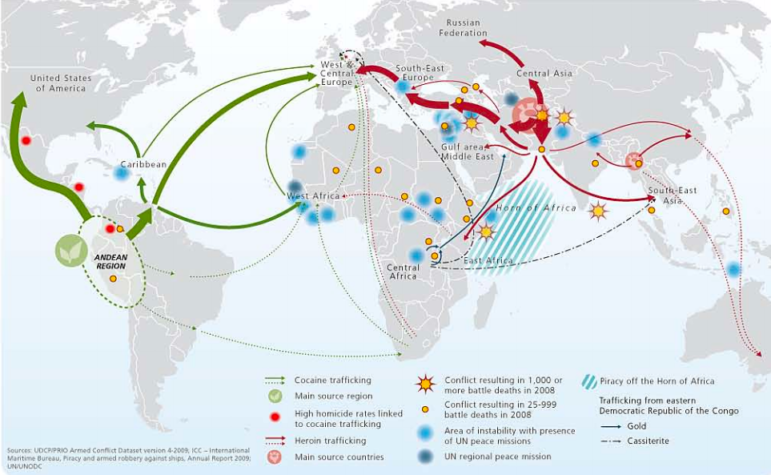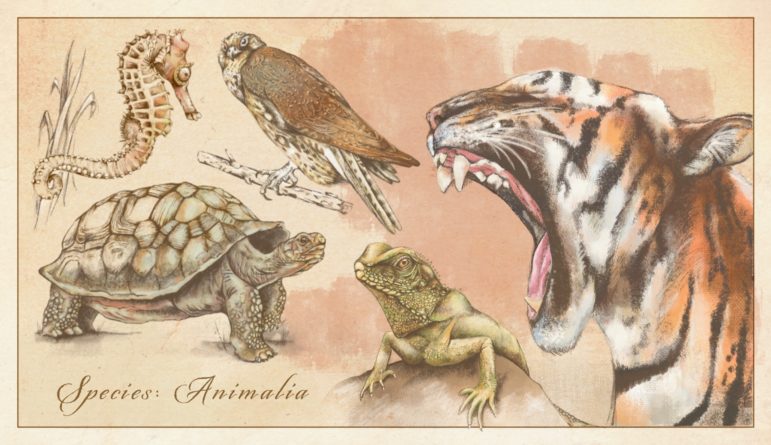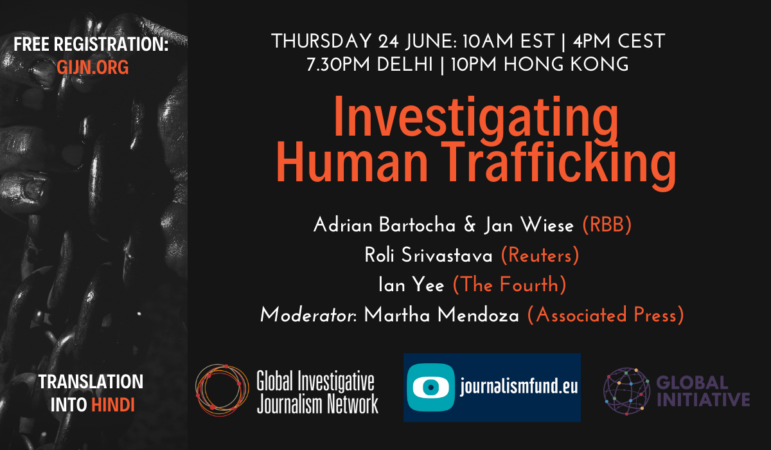
Organized Crime Reporting Tools & Tips
Latest Money Laundering Trends Journalists Should Watch For
A recent IRE conference panel focused on new money laundering strategies that make hiding illicit assets increasingly difficult to track.

A recent IRE conference panel focused on new money laundering strategies that make hiding illicit assets increasingly difficult to track.

At a JournalismFund.eu webinar, journalists Annie Kelly and Ian Urbina spoke of their experiences documenting human trafficking around the world.

In concert with GIJC21’s panel on the “New Organized Crime,” GIJN has released a comprehensive, multi-part reporting guide to investigating organized crime around the world, looking at nine key areas: criminal finance, narcotics, arms trade, environmental crime, forced disappearances, cybercrime, mafia states, human trafficking, and art and antiquities.

National laws that govern arms dealing are uneven, contradictory, influenced by corrupted leadership, and rife with loopholes. Other barriers to exposing the weapons trade range from maritime and aviation secrecy concealing the transportation of arms; corporate entities that shield dealers and operators; the role of neighboring countries as conduits, and a barter system that allows one illicit commodity, such as ivory, to be exchanged for another.

GIJN’s forthcoming guide to investigating organized crime features a chapter on what we call mafia states – countries that essentially operate as a criminal cartel and run the affairs of state much as a crime syndicate runs rackets. To explore this topic, we asked GIJN’s executive director David Kaplan to interview Drew Sullivan, co-founder and editor of the Organized Crime and Corruption Reporting Project.

The illegal trafficking of wild animals and plants is damaging biodiversity worldwide and spreading diseases. It’s an international story, with great opportunities for investigations in virtually every country. GIJN’s new guide encourages deep reporting about the subject with tips and tools for covering a global trade.

GIJN is pleased to present Investigating Human Trafficking, a webinar that will provide tips on how to dig into the two main types of human trafficking, sex exploitation and labor abuse, and discuss the best ways to cooperate with civil society groups that offer protection to victims of trafficking and slavery.